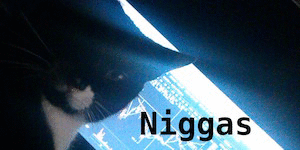Mythology is a fascinating subject I love the stories, they're rich and epic and grants us a glimpse at religion before monotheism. I think it's interesting that before Christianity, Europe had a wide variety of polytheistic religions and belief-systems. The Celts had their own polytheistic religion as did the Germanic and Nordic peoples. The relationship between the Nordic and Germanic pantheons are a lot like the relationship between the ancient Greek and Roman ones.
Conventional wisdom would say that the Gods Odin and Thor and the Aesir and such were purely a Scandinavian belief-system related to the vikings. However, Iceland, Norway, Sweden, Denmark, Germany, The Netherlands and Flanders, followed the same pantheon. When the proto-germanic peoples and language split off into proto-Norse and old Germanic, the language changed but the Gods didn't. For instance, Odin is called Wotan in the Germanic tongues, which includes Dutch. Since this is the localized legendarium i would like to talk about the ancient gods and peoples that believed in them in my neck of the woods. Interestingly enough us Dutch had a special Goddess that does not particularly occur in the Pantheon of my kinfolk, however, veneration of this Goddess became somewhat widespread through the regions around Holland and the North Sea. Originating from here, belief and worship traveled as far afield as regions in Germany, France and she may have also be worshipped in some parts of England.
Historically and traditionally the Dutch have always been interested in trade, especially by sea, due in large part because of our access to the North Sea not only at the coast but via the Rhine as well. As such I think that is one of the main reasons my ancestors had a need for a Sea Goddess. Her name as our archeological records indicate is: Nehalennia, which is a lovely name in my opinion, it sounds like it came from Latin but actually linguists have found the origins of the name to come from the Celtic and proto-Germanic words Nehwa, which means "close to" and halen for "sea", ne, "on, at". With the suffix "ja" to indicate a feminine noun. Thus, her name means "She who is at the sea". She is considered to be a type of mother Goddess, however her portfolio and spheres of influence include trade, travel, the sea, the cultivation and the conservation of plants, fertility, and sometimes even beauty.
Interestingly enough she seems to take traits from the more well-known Nordic/Germanic deities, Freyr, Freya, and Nerthus. Her character is most likely based on an amalgamation of those, but with a special affinity for the Sea and Trade.
Archeological research has found three great temples dedicated to her in what is currently the Dutch province of Zeeland. Less grand sanctuaries and shrines dedicated to her have been found all over the Eastern Scheldt, Rhine area and coastal regions.
She is usually depicted, accompanied by a ship, apples and a dog.

Occasionally she is also depicted with special loves of bread known as "Duivekater". Which is a sacrificial food. From what i understand Duivekater was considered a worthy offering and Nehalennia did not demand human or animal sacrifice.
Well i hope you found that interesting. If you did let me know, if you didn't, fair enough and let me know what you disliked. Also, if you are interested in Mythology, please tell me about your favorite Pantheon, God, or Goddesses. As an aside, i find Irish Mythology to be quite fascinating as well, and if you know a bit about it, i'd love to read your thoughts on it.


